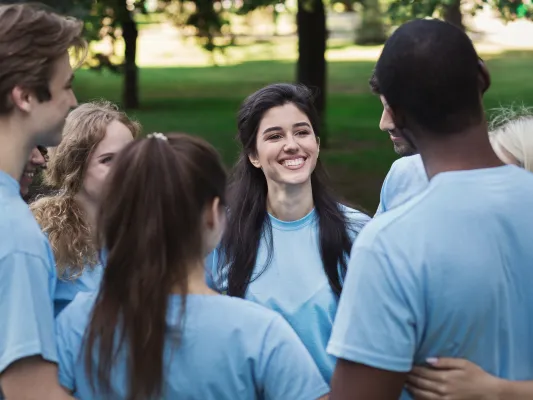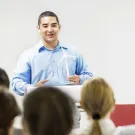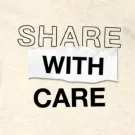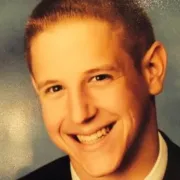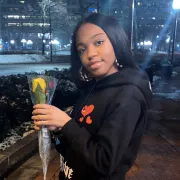As young people, we often try to strike a balance between “not being experienced enough” and a strong desire to take action and leave our mark on the world. This balancing act can apply to many aspects of our lives, such as writing an essay for a college application or answering interview questions for a job. It is easy to believe that we don’t have enough experience compared to others.
Understanding and valuing our “lived experiences” helps us grasp who we are as individuals and helps us communicate our experiences to the world. Young people are often viewed as inexperienced, but we already have a life full of lived experiences that have shaped who we are. Lived experiences inform the decisions we make, and they influence the way we see and think about the world around us.
Here are a few lessons and insights I have gained on my journey toward understanding my lived experiences.
Your lived experiences as a young person can influence your life path and shape your worldview.
People use different words to describe the meaning of a lived experience. Examples include stories, past experiences, and background. A brief from the U.S. Department of Health and Human Services defines lived experiences as the “representation and understanding of an individual’s human experiences, choices, and options.”1
In my own life, I use the word story to capture the collection of memories and experiences that influence the path of someone’s life. This is the most effective way for me to communicate the series of events that happened in my own life. For me, the words lived experiences are the personal knowledge that someone gains about the world around them through events in their own life. These experiences shape who they are and deeply impact their worldview.
Your lived experiences can inspire others.
Growing up as a Latinx male and the son of immigrants, I struggled to understand the value of an education until my last year of high school. I eventually realized that a Latinx male who lacks a high school diploma and positive direction in life faces a harsh reality. This awareness gave me a desire to succeed and build others up. I wanted to serve as a college advisor in a majority Latinx school in one of the lowest socio-economic neighborhoods in my city. This desire grew from my own lived experiences.
My experience with academic troubles and disciplinary issues in high school inspired me to develop a passion for helping young people in my community. I wanted to assist them in overcoming challenges and barriers like the ones I faced and help them get on track to postsecondary education. This led me to become a college advisor while I pursue a master’s degree. In this role, I advise young people as they explore what they might want to do after graduating high school. I also help them figure out how to get there. But it’s often more complicated than that. People in my community often go into the trades and work full-time. Very few students go on to a 2-year college or a small, 4-year college.
I often focus on the negative lived experiences, but the positive memories are often just as powerful. For instance, I remember receiving a free backpack with school supplies every year and playing basketball at my local community center after school. I appreciate the value of these experiences and their positive impact on me because they showed me that there were people who cared. They had a major influence on my desire to become a college advisor.
I learned that lived experiences can be simple memories, or they can be a source of inspiration or passion for a cause. These experiences can do more than fuel a personal mission. They can inspire other people and be a source of expertise.
Your lived experiences can help you connect with others and find your passion.
The value of recognizing your own lived experiences is that you can use them to connect with other people and figure out what you are passionate about. Intentionally using your lived experiences to help fuel a passion project or service activity is a great way to have a positive impact on your community. In some cases, you can even get paid for sharing your lived experiences, such as on an advisory panel or editorial board. Visit the opportunities section of the YE4C website to learn more about opportunities that may be a good fit for you!
By exploring the many opportunities to share either your time or talents in a way that makes use of your lived experiences you can quickly become centered on a topic, issue, or movement that could become a career, project, or life calling.
Here are a few steps you can take to connect with others, find your passion, and be an inspiration in your community.
1. Start with yourself.
Think about the life experiences that have shaped who you are or affected you the most. How and why did they affect you? Tying the various aspects of your identity to a lived experience can help you explore different areas and find one that you feel passionate about.
The Social Identity Wheel is one way to take inventory of your lived experiences. This simple tool is divided into various parts such as race, ethnicity, gender, and age. You can use this tool to brainstorm ideas about your lived experiences. Look at the Social Identity Wheel and note which parts stick out to you the most. Then ask yourself why those parts stand out. What lived experiences come to mind when you think about each part of your identity?
Think about the qualities of your community that you value. One way to do this is to imagine the different types of stickers you would put on a laptop. This exercise can help you visualize your values and put them into perspective. Maybe you are passionate about science, technology, engineering, and mathematics (or STEM), and you want to figure out how your community can support first-generation students of color as they pursue STEM careers.
2. Take action.
Once you have identified your lived experiences, you can get creative and take action to support your cause.
You could start or join a club or organization that addresses the issues you care about. For example, it could be a nonprofit agency or a youth advisory board. You can use your firsthand experiences as inspiration to help enact change or growth in your community. Being a servant-minded leader with firsthand experience and expert knowledge in a specific area leads to authentic results.
Look at where you already volunteer your time. Do you participate in any activities where you could increase your level of participation or leadership? If so, talk with other student leaders or civic organizers, and be sure to mention your lived experiences. Then brainstorm the ways you can use your lived experiences in the activity. For example, you could share your lived experiences with Big Brothers Big Sisters of America or you could mentor first-year students during your senior year of high school. The key point is to share your experience to support the learning and growth of others who can learn from you.
Share your expertise! There are many opportunities for you to share your lived experiences with organizations that can find your lived experiences insightful. For example, you can join government listening sessions, speak at conferences, join youth leadership committees, or take advantage of any number of opportunities to use your lived experiences to help others. You can also create and share content that helps others understand your experiences. Or you can take direct action through service and leadership projects. There are many ways to use your lived experiences to help others.
3. Be a part of a movement.
Your lived experiences go beyond your success. Even sharing your failures could uplift someone in their moment of difficulty. Your example could show others what’s possible despite the challenges they experience in their lives. It could even be the inspiration that changes the course of their life.
As people from Generation Z—those born between 1997 and 2012—we take pride in being the generation of loud and impactful change. However, to successfully create this change and understand our place in the world, we must first understand ourselves and our own lived experiences.
Skelton-Wilson, S.K., Sandoval-Lunn, M., Zhang, X., Stern, F., Kendall, J. (2022). Methods and Emerging Strategies to Engage People with Lived Experience: Improving Federal Research, Policy, and Practice
